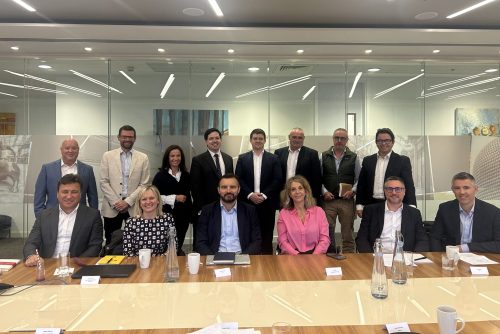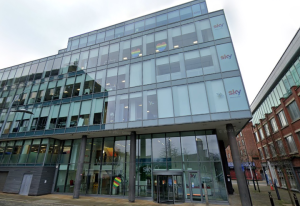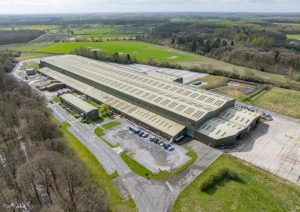West Midlands at a crossroads: overcoming barriers and seizing growth opportunities


With its strategic location, growing infrastructure and dynamic talent pool, the West Midlands is increasingly attractive to businesses and investors alike, but there are barriers to its future success.
Challenges and Opportunities in the West Midlands
Its large manufacturing industry, a vital component of its economy, faced significant setbacks during the pandemic. Disruptions to global supply chains, factory shutdowns, and a shortage of critical components, particularly in the automotive sector, have left lasting impacts.
Peter Arnold, Chief Economist at EY, acknowledged the region’s strength in manufacturing but pointed out its overreliance on the sector compared to the rest of the UK.
“Manufacturing is a high-productivity sector, but it has struggled to grow its share. To drive further growth, the region must maintain its manufacturing base while expanding its high-value service offerings and transitioning the workforce to these areas”.
The region’s service offering is not as diverse and dynamic as its competition in London and the South East, and as a result, the West Midlands’ growth is falling behind.

“How do we make Birmingham a really attractive place for people to live? The universities are obviously a great asset, but how do we retain students post-graduation, ensure they stay here and work here, rather than going back overseas or moving down to London and elsewhere in the UK?”
Analysis by EY expects the UK to grow by 1.92% on average over the next three to four years, with the West Midlands lagging behind at 1.7%.
Main challenges, not just for the West Midlands but the whole of the UK arise from the fallout of the pandemic.
Arnold warns that “we shouldn’t underestimate some of the long-term economic challenges on the labour market from the pandemic. We’ve seen a big rise in economic inactivity.
“But despite a slowing economy and a recession, unemployment is still at record lows. It is, however, still really difficult to recruit people of the right skill level. There are just real constraints on the labour market that the government will need to address. And of course, there are longer-term challenges around productivity and growth that have really been with us since the post-global financial crisis”.
Devolution will be key in driving growth, says Arnold, as it offers a “great platform for more tailored regional policy interventions that are based on the regional needs and regional demands.
“Infrastructure and skills are the cornerstones of economic growth, and perhaps with a bit more regional control, you can adopt strategies and hopefully address some of those underlying structural changes”.
Commonwealth Games Legacy and Regional Perception
One of the most significant drivers for Birmingham’s recent growth was the 2022 Commonwealth Games. This event not only showcased the city as an international destination but also provided a platform for attracting Foreign Direct Investment (FDI).
The region has historically lagged behind cities such as London and Manchester in terms of global perception. However, the investment triggered by the Commonwealth Games has started to shift that narrative, providing the West Midlands with an opportunity to build on its growing reputation.
Initiatives like the Global Growth Programme by the West Midlands Growth Company (WMGC), which targeted high-growth FDI companies, demonstrated that the region can be an attractive alternative to London for international businesses.
Katie Trout, director of policy and partnerships at WMGC, believes the FDI secured has created a “legacy” of the Games as well as changing the perception of the region.
The WMGC’s Business and Tourism Programme, linked to the Games, allowed the region to build a highly skilled internal team and foster deeper relationships with the UK government, Visit Britain, and Visit England. These partnerships helped position the West Midlands as a priority for investment.
Work on the global perception of the West Midlands has improved its standings as a place to invest in comparison to its competitors in London and Greater Manchester, but Trout believes the region is now cutting through.
She said: “Greater Manchester has been working at perceptions longer than us, but we have now made a dent on the global stage. We’ve got to, as a region, keep doing that if we’re able to really make a continued impact when it comes to attracting further investment.
“We’ve been able to do some specific programmes that help support bringing in that FDI. The Global Growth Programme is a really good example of that. We piloted during the games, where we targeted international firms that would normally have wanted to come to the UK and only thought about London, but we wanted to show that there was a real alternative here. We ended up getting about 40 different companies on the back of that pilot”.
Arnold said the West Midlands and Birmingham did incredibly well in attracting FDI in 2023, “leapfrogging the North West” to secure 127 Foreign Direct Investment (FDI) projects, its highest total of the last decade, according to EY’s UK Attractiveness Survey. The West Midlands’ 2023 project total was 72% higher than in 2022 and raised the region’s share of all UK projects to a decade-high 12.9%.

A real strength of the region is its central location, making it a strategic hub for national and international business.
With the development of the HS2 rail line set to be operational between 2029 and 2033, Cem Budak, Midlands Leader for global consultants Arup warned however that the city “must avoid becoming merely a suburb of London”.
He said: “One of the reasons we moved to our second largest office in the UK and the third global office to Birmingham is because of its talent pool and potential.
“It’s got great potential with international work across all five continents and there’s links to the rest of the UK which attracts talent into the city, but I think if you’re not very careful, it could also be a suburb of London.
“We have to ensure that we are attracting talent both ways, rather than just only one way”.
For Rob Valentine, regional director of Bruntwood, the opportunity of the HS2 link into North London will be “incredibly powerful”,
He said: “New opportunities and new parts of the city will unlock investment and we’re already seeing that now. We’ve got challenges around skills, but we can unlock these opportunities that will help with the gap.
“Universities play a big role here, and increasingly, we’re seeing more of our graduates choose to stay in the city. For Bruntwood, we will continue to drive a long-term investment. My aim is to have an equally powerful portfolio investment strategy that we see in Manchester, in the West Midlands”.
The decision not to extend HS2 to Manchester is seen as a blow to the West Midlands, as it limits the economic benefits that could have come from improved connections to the North of England.
However, this setback is also viewed as an opportunity by Craig Wakeman, head of HS2 and strategic partnerships at the WMCA. With businesses unable to access Manchester as easily as anticipated, the West Midlands could benefit as an alternative destination.
Wakeman said: “The line to Manchester being cut is quite a hit for this region because the economic impacts that we were expecting to see will be quite significant.
“With that said – it’s quite an opportunity, as people can’t now get to Manchester as quickly as they thought. So actually, the opportunities in the Midlands for certain businesses should actually grow, because they can’t relocate to Manchester.
“To fully capitalise on this, the region will need to continue improving its wider connectivity, to ensure that it remains an attractive location for both businesses and talent”.
The Mayors of Greater Manchester and the West Midlands had commissioned a private sector consortium to propose an alternative to improve connectivity between the two regions.
The consortium led by former HS2 boss Sir David Higgins, consists of Arup, Arcadis, EY, Skanska, Dragados, Addleshaw Goddard and Mace.
It has recently outlined plans for a Midlands-Northwest Rail Link (MNWRL), an 80km rail line between Lichfield and High Legh, connecting the Midlands to Northern Powerhouse Rail, with the potential to add up to £70bn annually to the West Midlands and Greater Manchester economies and yield up to £24bn in revenue per year for the Exchequer.

One project which has secured significant investment is the Birmingham Knowledge Quarter (BKQ), set to deliver 615,652 square meters of developed floorspace for advanced manufacturing, R&D-driven real estate engineering, advanced digital technologies, and health tech research, creating between 20,000 to 25,000 jobs.
It forms part of the West Midlands Investment Zone, which will focus on advanced manufacturing across Birmingham, Wolverhampton and Coventry, with expectations that it will help to leverage £2bn in private investment and create 30,000 jobs by 2034.
An anchor investment of £70m has been made from Bruntwood SciTech and Woodbourne Group for the BKQ. It’s also backed by more than £5m of investment into enabling digital platforms to support advanced manufacturing growth.
Jo Birch, Chief Innovation Officer at Woodbourne Group, says it’s striving to ensure that BKQ “is not just seen as Birmingham’s exemplar innovation district, but it’s connected throughout the world”.
Working in partnership, Birch is aiming to create a globally relevant quarter that “is exciting enough to attract and retain talent and maximise population diversity to create an incredible place to work and live”.
Echoing Valentine’s thoughts, Birch says BKQ can leverage from the 65,000 graduates a year coming into the West Midlands’ ecosystem, which should “force the supply chain into being highly trained individuals that can go into highly productive economics that are connected as part of a collaborative ecosystem”.
Whilst the panel felt more optimistic about the region’s position on the global stage and its record FDI in 2023, Abbie Vlahakis said the focus must switch to the young people already here.
She said: “We have the highest youth unemployment and there’s so many barriers to young people getting into education. It’s fine to encourage talent into the city, but what about the younger generation we have already?
“We need to work to lift their aspirations, upskill them and then that will help them with housing. At Millenium Point, we’re working with the private sector to give grants and scholarships and with the council and other partners to develop a roadmap on how we can intervene in a child’s life at different stages.
“There are young people out there who are written off too young, and they actually have the ability. Sometimes we lose sight of the people already here and focus inward – let’s look at what we’ve got”.
The West Midlands is a region rich in opportunity, with a growing reputation as a hub for business and innovation. The Commonwealth Games legacy, improved connectivity, and a focus on skills and education are all driving factors behind the region’s recovery and growth.
However, challenges remain, particularly in terms of youth unemployment and ensuring that the benefits of growth are felt across the entire region.
With initiatives such as a BKQ and major infrastructure projects like HS2, the West Midlands can build on these platforms to establish itself as a major player in both the UK and global economies. The potential is there, but it will require collaboration, strategic focus, and long-term investment to fully realise it.








